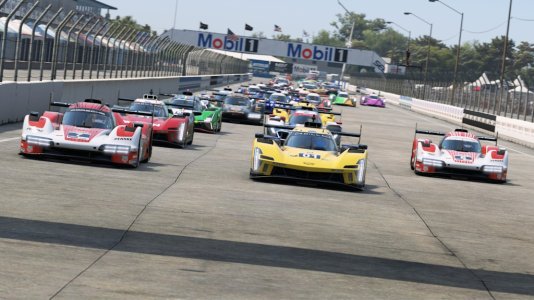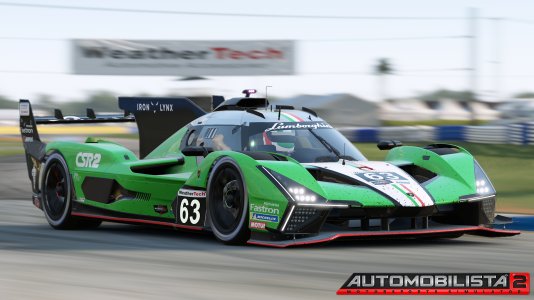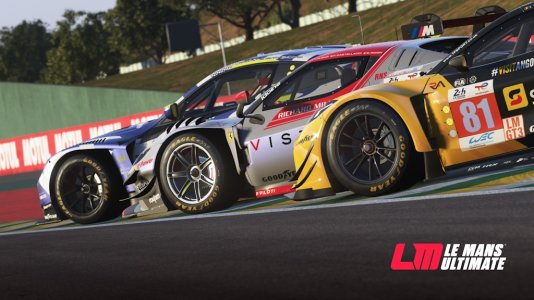Two must-wins down, two to go for Lewis Hamilton.
His second win in as many weeks, Hamilton was once again able to get the best of Mercedes teammate Nico Rosberg, keeping alive his championship hopes in a race that was an enchilada full of controversy.
Seemingly inconsistent penalties, a game of musical chairs for third, and a four-time world champion going nuclear highlighted what was an undeniably stormy race. Starting on pole, Hamilton locked-up going into the first turn but maintained his lead as despite cutting the corner, the stewards deemed he hadn’t gained an advantage – a cloudy decision made worse when Red Bull’s Max Verstappen was given a 5-second time penalty for a similar move on lap 68. The penalty was enough to demote Verstappen off the podium, although the man who replaced him, Ferrari’s Sebastian Vettel, was also demoted for moving under braking while trying to defend from Daniel Ricciardo – a punishment meted-out after Vettel had already earned a spot on the naughty list with an expletive-laden rant on team radio against both Verstappen and race director Charlie Whiting.
Thus in the end it was Red Bull’s Ricciardo who joined the Mercedes pair on the podium – albeit not concurrently – while questions over Hamilton and Vettel’s incidents dominated the post-race discussion. Read on for a closer look at just what exactly went down at the 2016 Mexican Grand Prix.
Lewis Hamilton needed this win, and he got it. But should he have? For fans and drivers alike, that question has proven equally divisive.
Once again comfortably ahead of Nico Rosberg in Saturday qualifying, Hamilton could have seen his advantage evaporate after a nervy start on Sunday. Just as in Austin the Brit was untroubled off the line, but after locking his front-right tyre decided to skip turn 2 completely before re-joining at turn 3, a move that at least live, seemed to have given him an advantage. In any case, the safety car-inducing incident between Pascal Wehlein and Marcus Ericsson seemed to nullify the issue, as Hamilton managed to escape the stewards’ ire entirely.
Having dominated the rest of the race, much has been made of what was essentially its turning-point, and understandably so, particularly given what would later happen to the aforementioned Max Verstappen. With Sebastian Vettel right on his tail, he also suffered a lock-up into turn 1, opting to re-join at turn 3, refusing to give-up his position in what was probably a Red Bull (despite what we initially heard on team radio) order to back Vettel into Daniel Ricciardo. That move was an open-and-shut penalty from the stewards, making Hamilton’s reprieve look all the more curious.
Driver opinion was split on Hamilton, with Rosberg (the man who stood to benefit most from a Hamilton penalty) suggesting it was “OK”, while Ricciardo admitted “[he didn’t] know what was different with [Verstappen’s] move and Lewis'”, and Force India’s Nico Hulkenberg remained adamant Hamilton had gained a “massive advantage”. Of course, the stewards’ opinion is all that really matters in these cases, so what could have been their reasoning?
There’s two things that work in Hamilton’s favour, the first being that unlike Vettel, Rosberg was not racing with Hamilton, but actually busy fighting with (funnily enough) Verstappen, with his own off-track sojourn making his teammate’s advantage appear larger than it actually was. The second is that unlike those of us watching on TV, the stewards do have access to the telemetry – meaning they would know for sure if Hamilton lifted, or if Verstappen didn’t, and that’s an important factor to consider.
That said, Hamilton is far from absolved. He may have lifted, but “gaining an advantage” shouldn't only be a question of time won/lost, but also whether a driver has actually had to pay for their mistake. A popular refrain in the wake of Sunday was to introduce more gravel traps, and while that’s probably unfeasible for most circuits looking to host different varieties of motorsport, shouldn’t such errors be met with more than just a maintenance of the status quo? If the surface outside track-limits isn’t going to penalise a driver, why shouldn’t the stewards step in?
Following from this is the issue that stewarding of F1 races remains an essentially amateur operation. It’s the only major sport where the people responsible for enforcing the rules have no formal qualifications, nor training, and can drop in or out as they please. It doesn’t matter whether it’s Alan Jones or Nigel Mansell, there’s no consistency across the season, let alone within an individual race.
Penalty aside, Hamilton does deserve plaudits for what would have been a deceptively difficult afternoon. The ease with which he ended up winning really belies just how tricky his opening stint was, as the vibration from his flat-spot was bad enough Mercedes considered pitting him immediately to save his suspension. To survive that and ease away from Rosberg shows just how good his form currently is. Instead expect the noise to continue, with Hamilton having no choice but to block-out the criticism as he prepares for his toughest test yet at Interlagos.
Since F1 introduced a fan-voted “driver of the day” award at the start of this season, the results have often been farcical. On Sunday the fans got it right, awarding it to the one, the only, Sebastian Vettel.
No, it wasn’t because he was the best driver (otherwise Rio Haryanto would’ve won for successfully navigating the path between his couch and the fridge), but on a day with plenty of animosity to go-round, it was Vettel whose star burned the angriest.
It’s no secret that the last few months have been particularly trying for both Vettel and Ferrari as they’ve failed to build on the promise of 2015, with team-radio outbursts being a frequent outlet for his frustrations. Sunday’s edition was the best yet, going off on not just nemesis Max Verstappen, but Charlie Whiting also. Whether they deserved it or not, part of what makes motorsport such a good fit for TV is that the viewer gets to listen to those heat-of-the-moment conversations. Undoubtedly he wishes he could take back his choice words for Whiting, but outrage at officials is a fairly established part of all sport, it’s just rare that we get to hear it.
What’s more is there is something of a delicious irony that Vettel, who as a young superstar at Red Bull – with his dreaded finger, feistiness on-track and repeated butting of heads with senior-figure Mark Webber – rubbed many onlookers the wrong way, now finds himself locked in a clash with a tempestuous young talent of his own in Max Verstappen. His finger wag to Verstappen after crossing the finish was highly amusing, particularly as he was later given his own “no-no” by the stewards for a Verstappen-esque block under braking, which given he’d pushed to include in the rulebook, only heightened the irony.
The quintessential wunderkind, Vettel’s transformation to the F1-equivalent of middle-age has been fascinating to watch, but in Verstappen he’s found someone who (intentionally or not) seems to find every button to there is to press, momentarily wiping out any semblance of the German’s maturity. In a year that has lacked competitiveness, their clashes have become a highlight – let’s just hope that next year, they can do it over more than breadcrumbs.
Should Hamilton have been penalised for cutting the first corner? Has Rosberg slipped since Suzuka? Is the Vettel-Verstappen rivalry good for F1? Sound off in the comments below.
Last edited:











